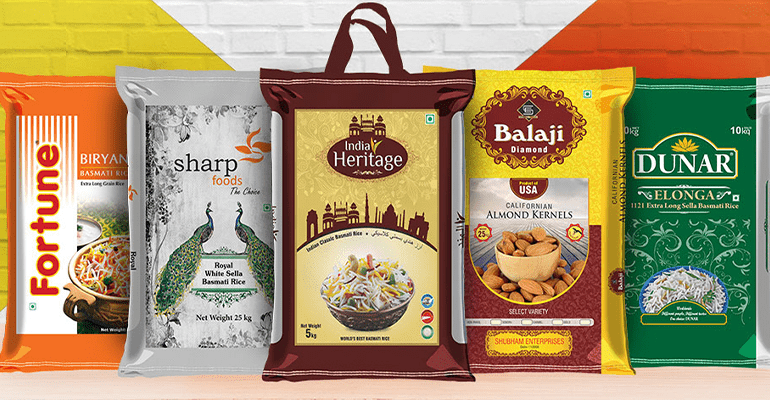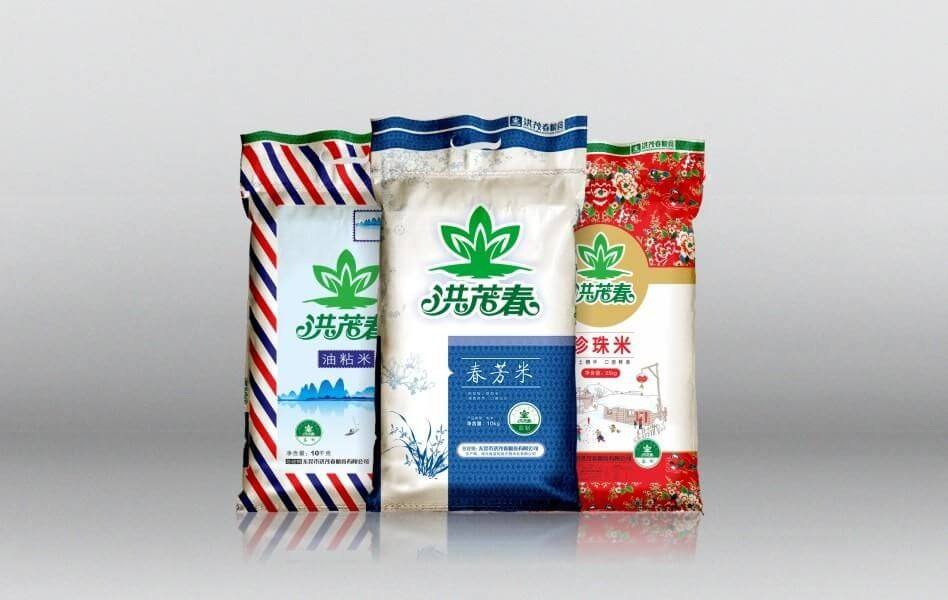In recent years, the Indian FMCG (Fast-Moving Consumer Goods) industry has experienced remarkable growth. A key factor behind this expansion is the evolution of packaging solutions, especially woven bags. These bags, known for their durability and versatility, have become an essential part of the packaging landscape. They are particularly beneficial to FMCG businesses in India. In this blog post, we’ll explore how woven bags support the FMCG industry’s growth and why companies are increasingly relying on them.
The Role of Woven Bags in the FMCG Sector
The Indian FMCG industry is vast and diverse, with sectors such as food, beverages, personal care, and pharmaceuticals. Each of these industries requires packaging that protects products, ensures efficient distribution, and helps brands stand out. Woven bags, typically made from polypropylene or polyethylene, provide the necessary strength and flexibility for these tasks.

These bags are essential for bulk packaging. They offer solutions for everything from grains and spices to household products. Woven bags can withstand the challenges of transportation and handling, making them indispensable for FMCG businesses.
Key Advantages of Woven Bags for FMCG Packaging
Several benefits make woven bags an ideal packaging solution for the FMCG sector. Let’s take a closer look at these advantages:
1. Durability and Strength
One of the primary reasons woven bags are preferred in the FMCG sector is their durability. Made from materials like polypropylene, these bags can endure the stresses of transport and handling. They are built to withstand heavy loads, ensuring that FMCG products remain safe during transit. This durability is crucial, as it prevents the risk of product damage.
2. Cost-Effective Solution
Cost efficiency is a major consideration for FMCG companies, especially given the large-scale nature of production. Woven bags offer an affordable alternative to other packaging materials like cardboard or plastic. Not only are they inexpensive to produce, but they can also be reused multiple times. This helps businesses reduce long-term packaging costs, especially when managing bulk shipments.
3. Sustainability and Eco-Friendliness
As environmental concerns rise, businesses are increasingly looking for sustainable packaging options. Woven bags provide an eco-friendly solution. They are reusable and recyclable, which helps reduce waste. Unlike single-use plastic packaging, woven bags contribute to a more sustainable approach. This is particularly important for FMCG companies aiming to align with global sustainability initiatives.
In India, where waste management is becoming a pressing issue, businesses that adopt woven bags benefit from staying ahead of regulatory requirements. The use of woven bags also boosts the company’s image among environmentally conscious consumers.
4. Versatility in Packaging FMCG Products
Woven bags are highly versatile, making them suitable for a wide range of FMCG products. From food and beverages to household items, these bags can accommodate nearly any product. They come in various sizes and configurations, allowing businesses to choose the most suitable option for their packaging needs.
In addition to their versatility, woven bags offer an added layer of protection. Many are treated with coatings like BOPP (Biaxially Oriented Polypropylene) to safeguard the contents from moisture, dust, and pests. This is especially important for products such as food grains, which need to remain fresh during distribution.
How Woven Bags Improve Distribution and Supply Chain Efficiency
For FMCG companies, efficient distribution is critical to success. Woven bags contribute significantly to streamlining supply chains. Let’s look at how they enhance distribution efficiency:
1. Space Optimization in Storage and Transportation
Woven bags make better use of storage space. Their strength allows them to be stacked efficiently in warehouses, reducing the need for excessive space. As a result, businesses can cut down on storage and transportation costs. This is particularly beneficial for large-scale operations, where cost savings are crucial.
2. Easy Handling and Transportation
Another advantage of woven bags is their ease of handling. These bags are designed with built-in handles or loops, making them easy to lift and transport. Whether using forklifts or manual labor, handling woven bags requires less effort compared to other packaging materials. This efficiency speeds up the movement of goods, reducing labor costs and increasing operational productivity.
Customization and Branding with Woven Bags
In today’s competitive FMCG market, branding plays a key role in attracting consumers. Woven bags offer ample space for customization, making them an excellent tool for brand differentiation. Companies can print their logos, product details, and other visuals on the bags to enhance their brand visibility.
Moreover, businesses can customize the design, color, and size of woven bags to match their branding strategy. This flexibility allows companies to tailor packaging to both bulk packaging needs and retail packaging requirements. By customizing woven bags, companies create a lasting impression on consumers, which can lead to increased brand loyalty.
The Future of Woven Bags in India’s FMCG Industry
Looking ahead, the demand for woven bags in the Indian FMCG sector is expected to rise. As companies seek packaging solutions that are not only functional but also sustainable, woven bags will continue to play a crucial role. The growing emphasis on environmental responsibility and cost efficiency will further drive this trend.
Advancements in woven bag technology will also contribute to their popularity. Future innovations may result in even more durable, lightweight, and customizable packaging solutions. These improvements will enable FMCG companies to meet evolving consumer expectations and regulatory requirements, positioning woven bags as the go-to choice for industrial packaging.
Conclusion
Woven bags are a valuable asset to the Indian FMCG industry. Their strength, affordability, sustainability, and versatility make them the ideal packaging solution for a wide variety of FMCG products. From improving supply chain efficiency to enhancing brand visibility, woven bags support FMCG businesses in multiple ways. As the industry continues to grow and adapt to consumer demands, woven bags will remain an essential component in the packaging of fast-moving consumer goods.
By investing in woven bags, FMCG companies can not only optimize their operations but also contribute to a more sustainable future. The versatility and environmental benefits of these bags will ensure their continued prominence in the Indian market for years to come.
